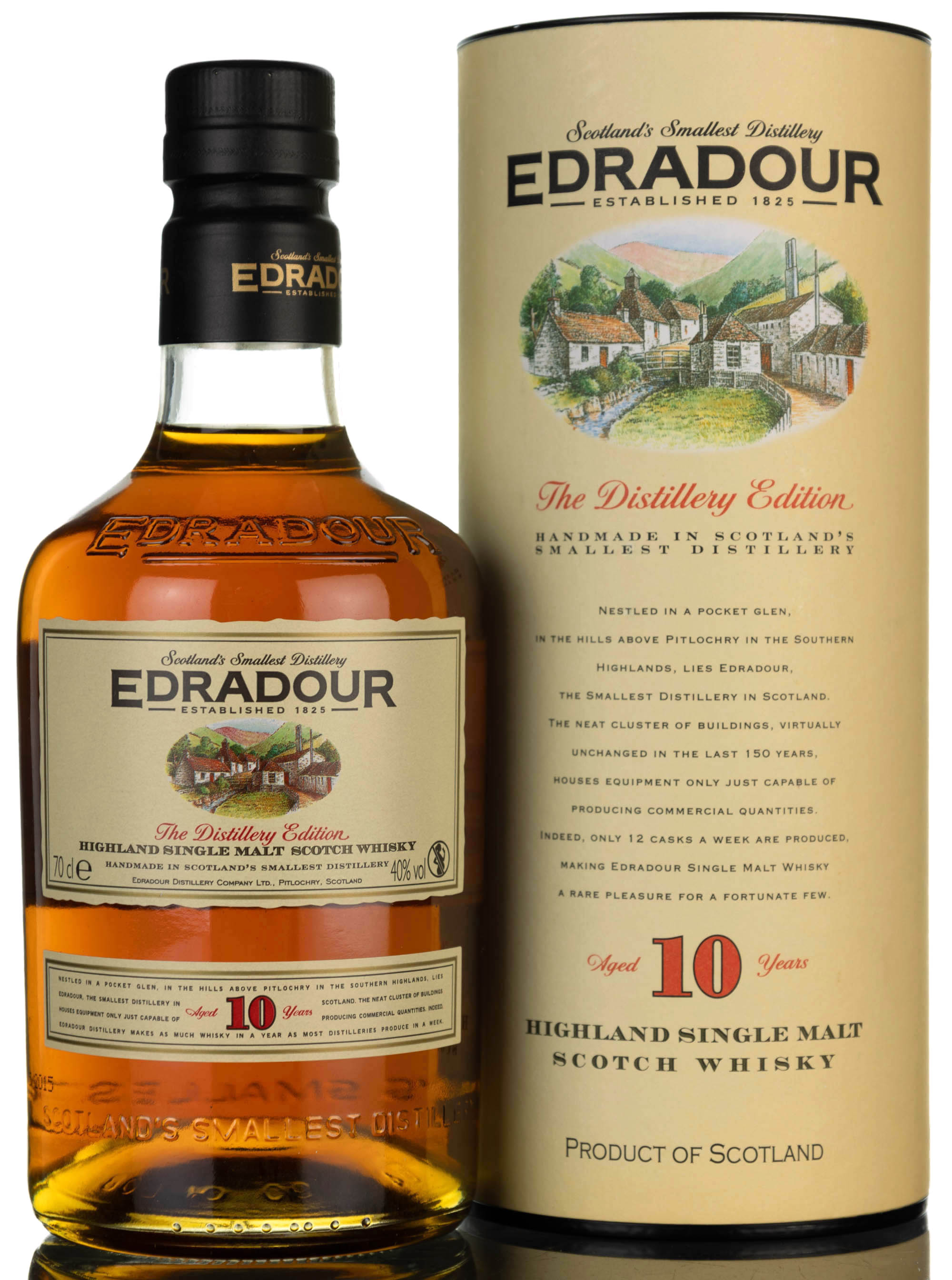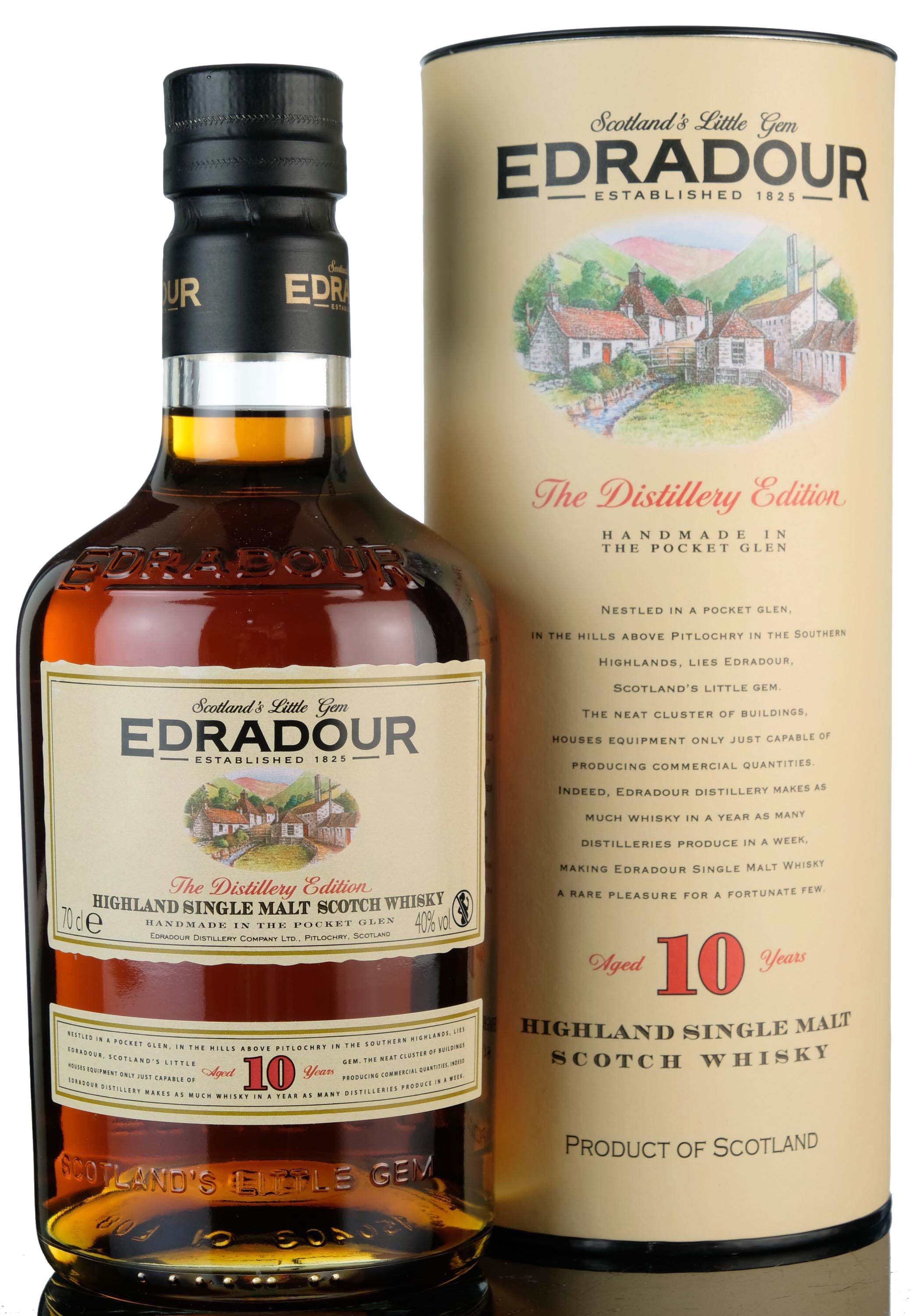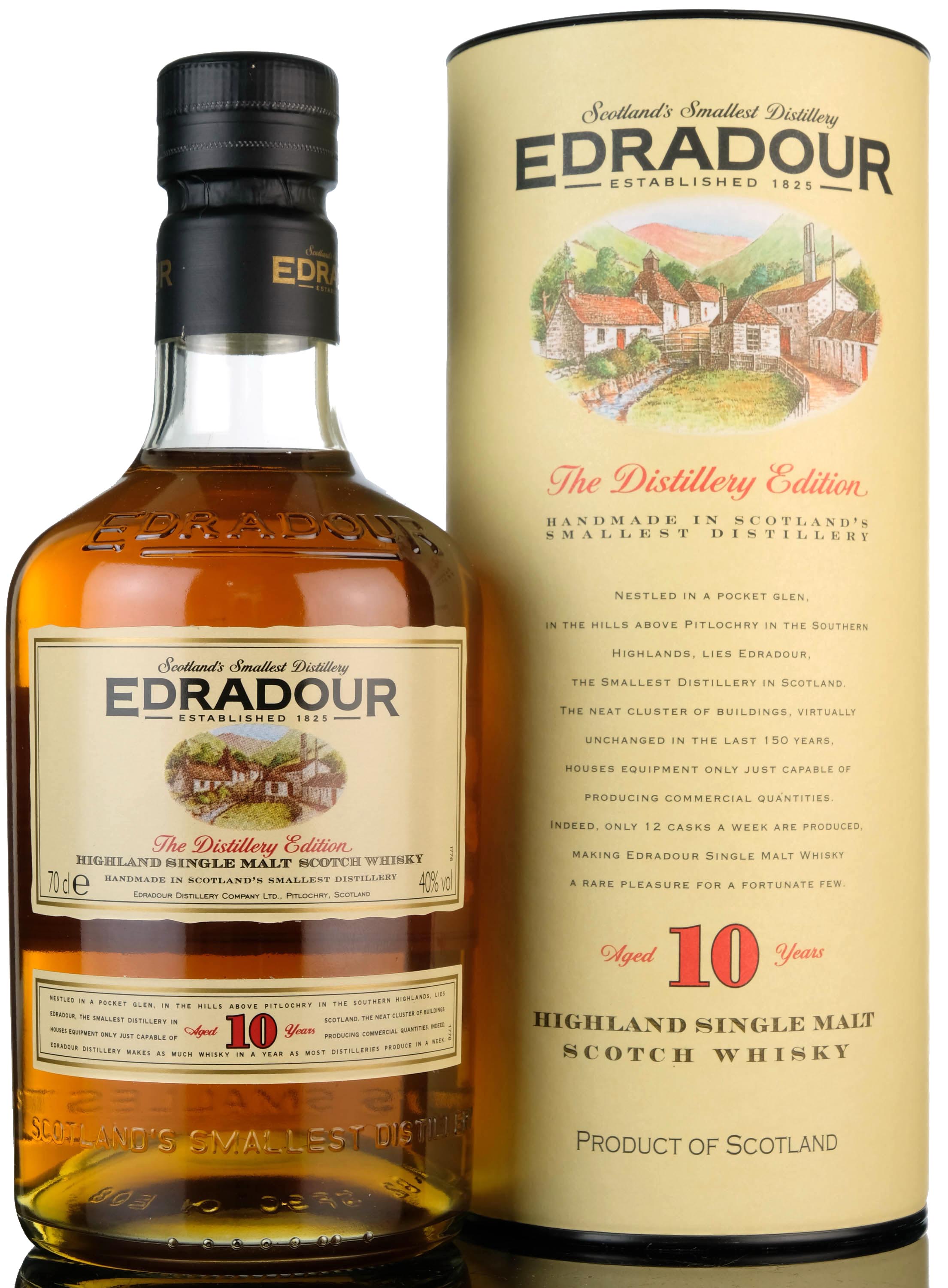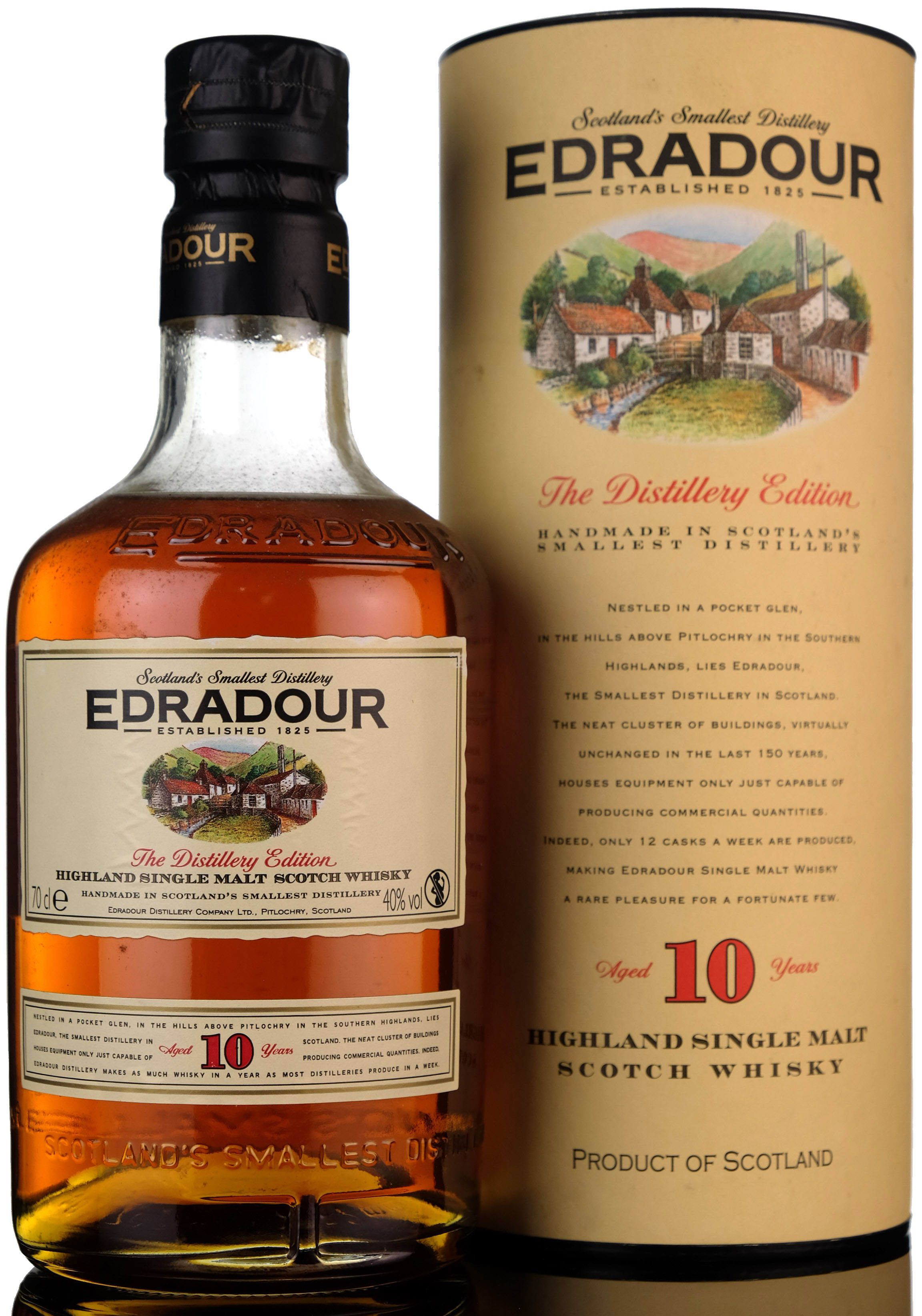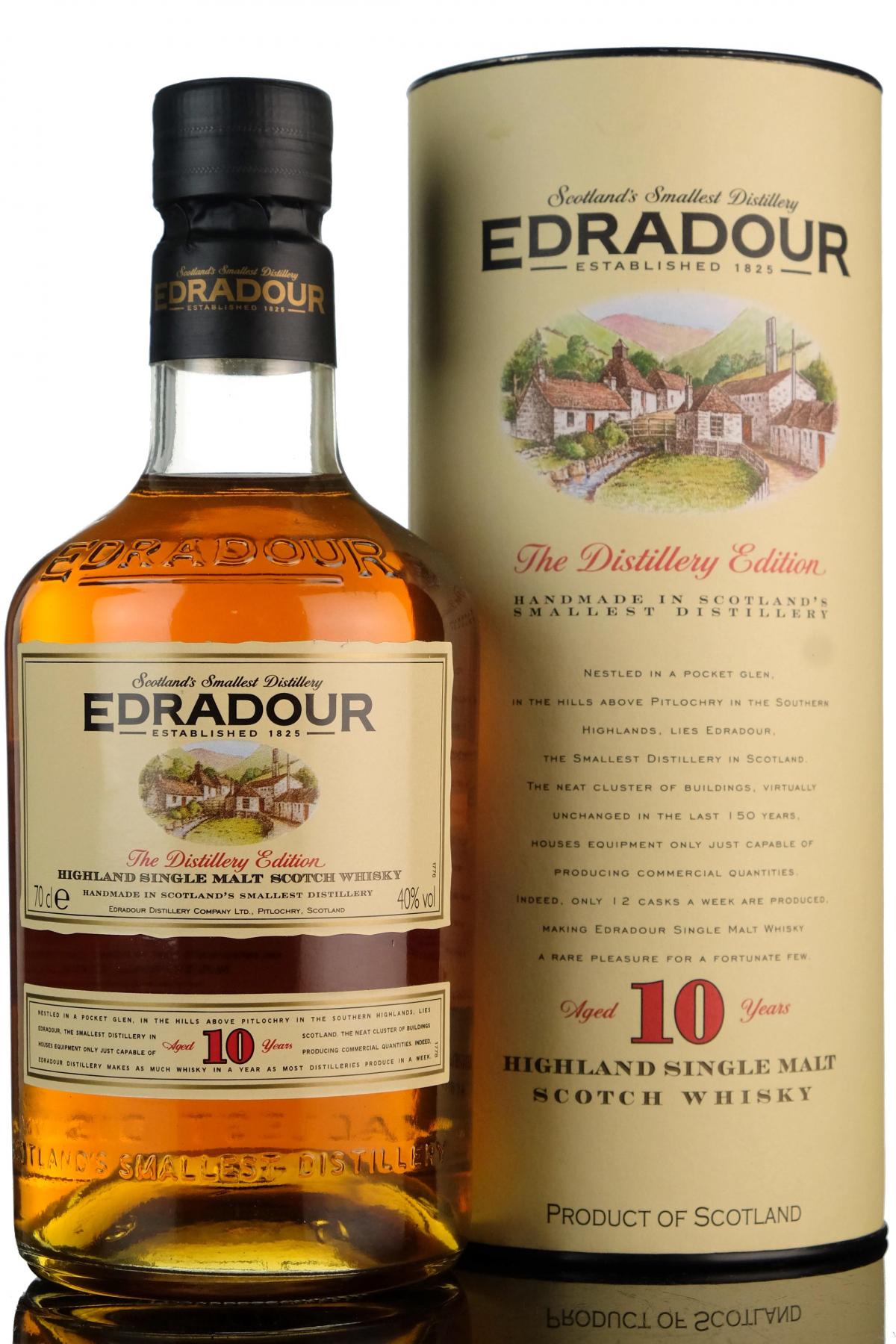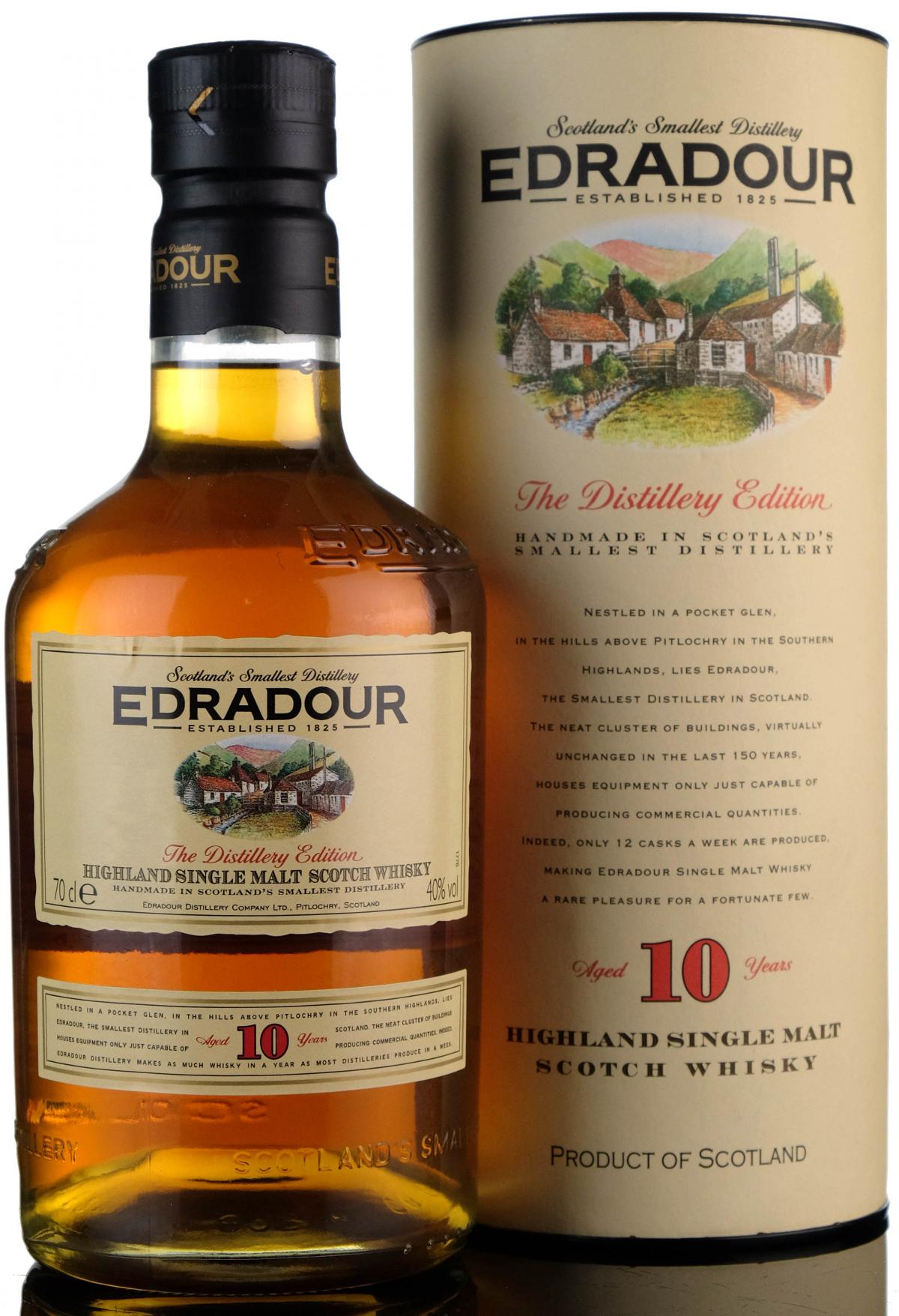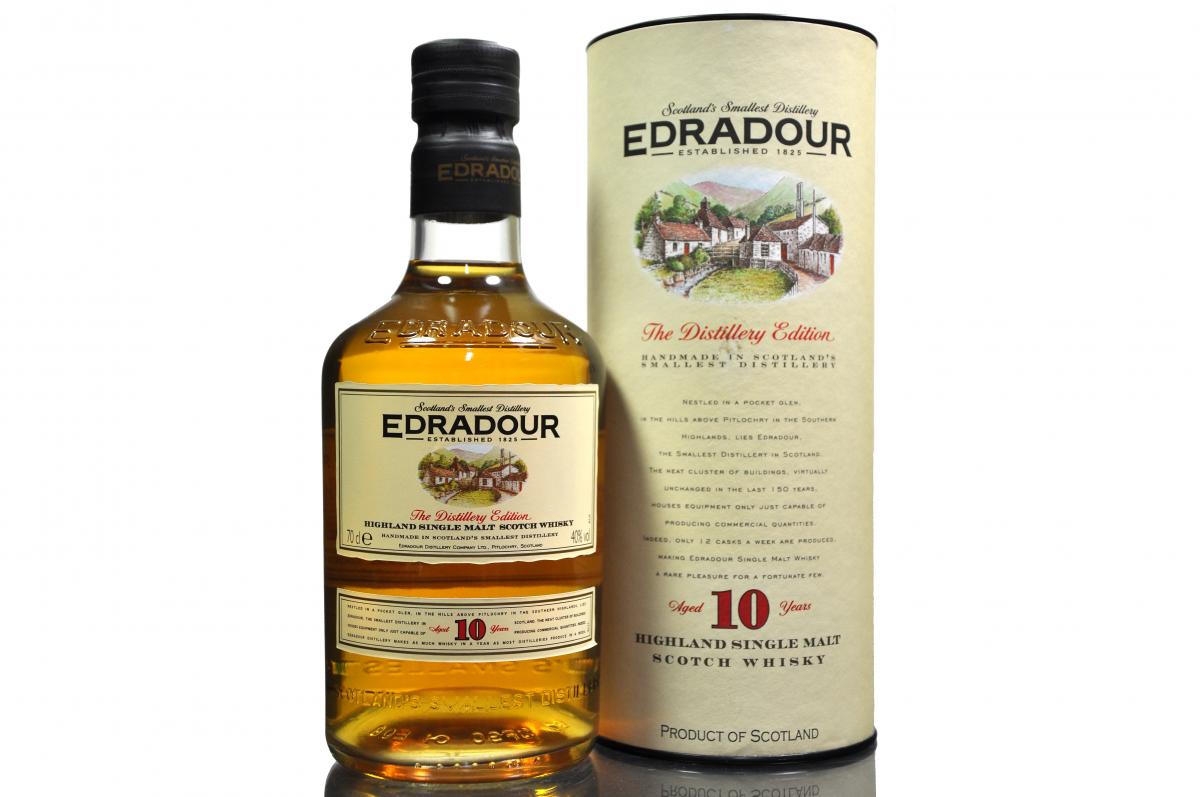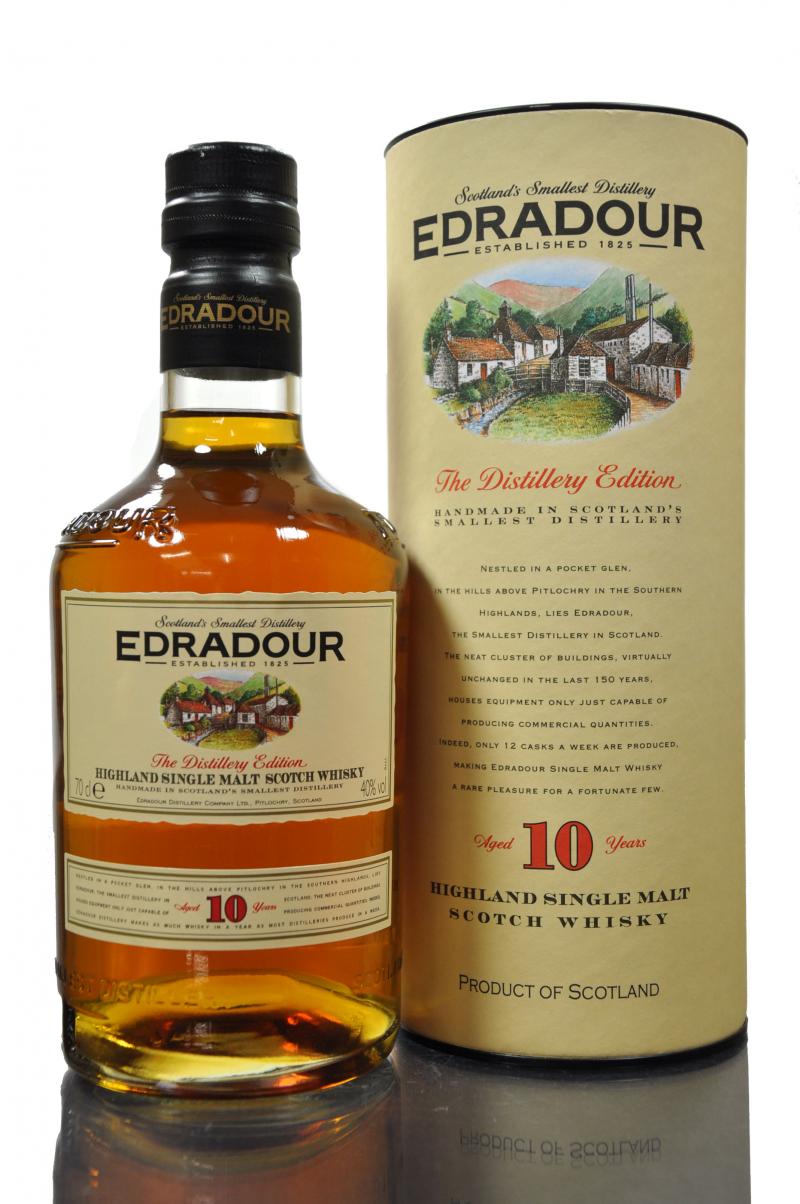Total Lots Sold:
11
View Lots
Do you have this bottle for sale?
SELL IT TODAYHAMMER PRICE OVER TIME
This graph displays data solely from Whisky-Online Auctions past sales history. Please note the filling level of the liquid and the condition of an item can affect the price negatively, so please check individual Lot sales below if there's a sudden dip in the graph.
HAVE ONE FOR SALE?
Submit your details along with an image and a description of your bottle. We'll then be in touch with the best way to proceed.
WHY SELL WITH WHISKY-ONLINE AUCTIONS?
0% Sellers Commission
Free Collections Available
Over 30 Years In The Whisky Industry
Over 1,700 Five Star Trustpilot Reviews
We Sell The Rarest Whiskies Ever Bottled
Global Buying Audience Including Far East Buyers
Bespoke Auction Platform
Thousands Of Active Bidders
Large Database Of Newsletter Subscribers
Over 36k Social Media Followers
Edradour 10 Year Old
Edradour 10 Year Old. 70cl. 40%.
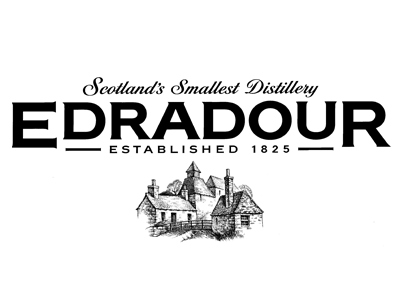
Edradour in the picturesque Highland town of Pitlochry is one of Scotland’s smallest and most charming whisky distilleries. Founded in 1825, the distillery was taken over in 1982 by Pernod Ricard, who sold Edradour to Andrew Symington’s Signatory Vintage in 2002. Symington wanted his own distillery to offset supply risks and give his company a source of new make spirit to trade with other distilleries.
Edradour distillery was truly tiny in 2002, with a production capacity of less than 100,000 litres per annum, but the success of the Symington era enabled expansion, with a second distillery opening onsite in 2018 and an increased capacity of around 250,000 litres per annum. Aside from the official 10-year-old and a new peated Edradour whisky named Ballechin, Symington has bottled hundreds of Edradour single cask whiskies from his inventory, the majority finished in different wine casks.
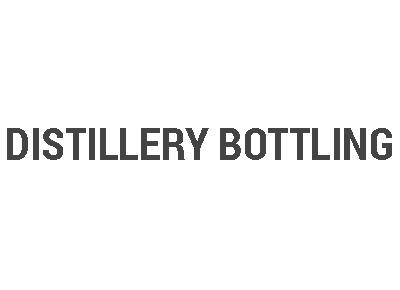
Distillery bottlings are, as the name suggests, bottled by or for the distillery from which the whisky has originated and are thus often referred to as Official Bottlings or OBs. Distillery bottlings are generally more desirable for collectors and usually fetch higher prices at auction than independent bottlings. They are officially-endorsed versions of the whisky from a particular distillery and are therefore considered the truest expression of the distillery’s character.
This ideal of the distillery character is regarded so seriously by the distilleries and brand owners that casks of whisky that are considered to vary too far from the archetype are frequently sold on to whisky brokers and independent bottlers. When this happens, it is often with the proviso that the distillery’s name is not allowed to be used when the cask is bottled for fear of diminishing or damaging the distillery’s character and status.


